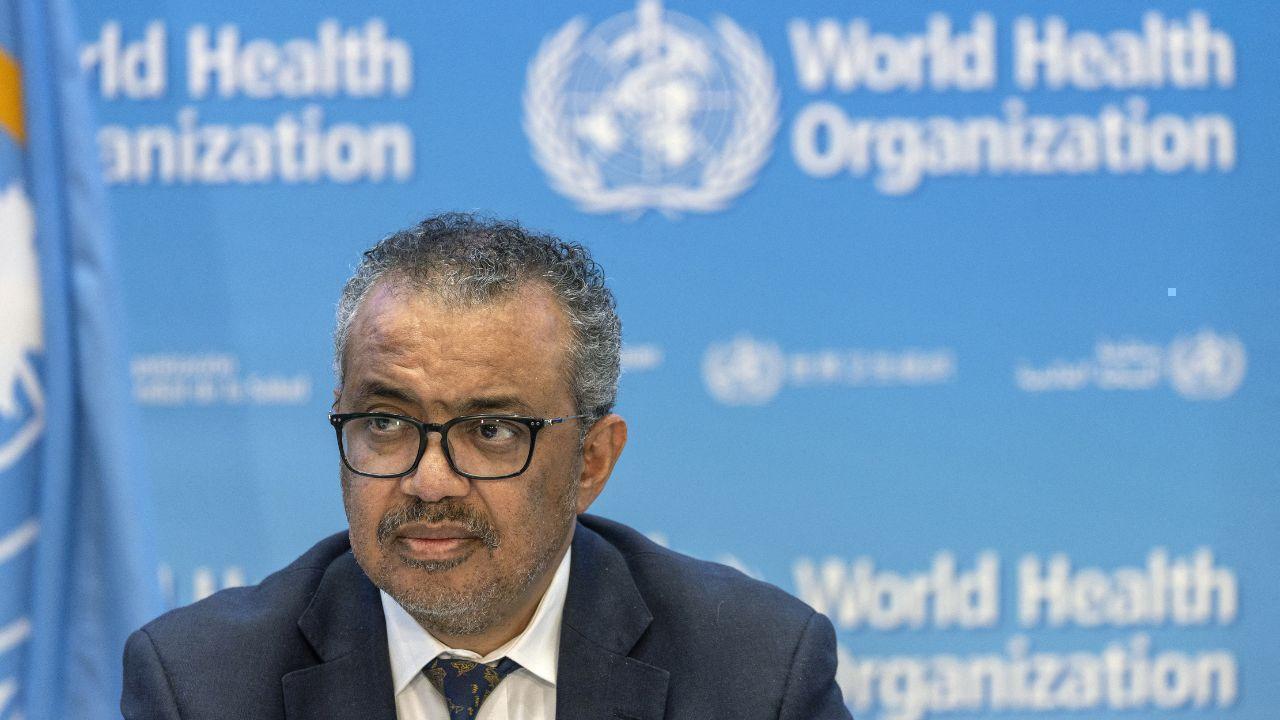
Post by : Priya
Photo:Reuters
The COVID-19 pandemic changed the world in many ways. It left behind a deep impact not only on people’s physical health but also on their mental and emotional well-being. As nations continue to rebuild, the world is now facing a new kind of emergency—a global mental health crisis. In response to this growing concern, the World Health Organization (WHO) has taken a historic step by launching a Global Mental Health Alliance, a joint effort of countries, organizations, and experts to improve mental health care across the globe.
This initiative comes at a crucial time, when millions of people—especially children, youth, frontline workers, and vulnerable communities—are struggling with stress, trauma, depression, and anxiety triggered or worsened by the pandemic.
The Post-Pandemic Mental Health Crisis
Even before the pandemic, mental health was often overlooked. According to WHO data, one in eight people globally lived with a mental health condition. However, the arrival of COVID-19 intensified these problems. Lockdowns, economic uncertainties, school closures, social isolation, and the loss of loved ones created a perfect storm for mental distress.
A WHO report from 2023 found that the global prevalence of anxiety and depression rose by over 25% during the first year of the pandemic alone. These numbers remained high even after restrictions eased. In particular, low- and middle-income countries were hit hard due to weak healthcare systems and lack of mental health services.
Children, teenagers, and young adults have been among the most affected. With schools closed and social lives disrupted, many suffered in silence. The same goes for healthcare workers who worked tirelessly through the crisis, often without mental support. Women, the elderly, refugees, and people living in poverty have also been heavily impacted.
What is the Global Mental Health Alliance?
The Global Mental Health Alliance launched by WHO is a wide-reaching partnership aimed at transforming how the world understands and treats mental health. This alliance brings together governments, international organizations, academic institutions, non-profits, and civil society groups.
Its purpose is to unite efforts under a common goal: to make mental health care accessible, affordable, and acceptable for everyone, everywhere.
The alliance focuses on four key priorities:
Improving Access to Care
Mental health services are still unavailable in many regions. The alliance will help countries strengthen their mental health systems, particularly at the primary care level. This means training local health workers, setting up community support centers, and integrating mental health care into everyday healthcare.
Raising Awareness and Reducing Stigma
One of the biggest challenges in mental health is social stigma. Many people avoid seeking help out of fear or shame. The alliance will launch global awareness campaigns to encourage open conversations, educate communities, and normalize the idea of seeking help.
Expanding the Mental Health Workforce
There is a severe shortage of mental health professionals around the world. WHO’s alliance will support the training of doctors, nurses, counselors, and social workers so that more people can receive professional care, even in rural and underserved areas.
Sharing Knowledge and Best Practices
Countries will be encouraged to share successful programs and community-based models that others can adopt. This could include mobile mental health units, school-based mental health support, workplace wellness programs, and more.
Voices from Around the World
The alliance has already gained support from various governments and international partners. Countries such as Canada, India, Kenya, Brazil, and Norway have expressed strong interest in contributing to this mission.
At the launch event in Geneva, WHO Director-General Dr. Tedros Adhanom Ghebreyesus said:
“Mental health is not a privilege—it is a fundamental human right. The pandemic taught us that we can no longer treat mental health as a side issue. It must be a top priority for every country, every health system, and every community.”
Health ministers and representatives from UNICEF, UNESCO, and the World Bank echoed the message. They all agreed that improving mental health is essential for economic recovery, social harmony, and long-term health.
Mental Health for Children and Youth
One of the alliance’s major focus areas is the mental health of children and adolescents. During the pandemic, students across the world faced isolation, digital fatigue, and loss of classroom learning. Many were left without access to school counselors or peer support.
The alliance aims to work with ministries of education and youth organizations to provide:
WHO believes that mental health care should start early in life. Preventing problems in childhood can reduce the risk of severe illness later in adulthood.
A Focus on Vulnerable Communities
The alliance also intends to reach those in conflict zones, refugee camps, and low-income areas. These groups often suffer in silence with little or no access to help. In many countries, mental illness is still considered a taboo subject.
Community-based solutions will play a major role. WHO and its partners plan to:
Making Mental Health Part of Everyday Life
The WHO alliance wants to make mental health support part of daily life, not just something people seek during emergencies. This includes mental health services in:










Kazakhstan Boosts Oil Supply as US Winter Storm Disrupts Production
Oil prices inch down as Kazakhstan's oilfield ramps up production, countered by severe disruptions f

Return of Officer's Remains in Gaza May Open Rafah Crossing
Israel confirms Ran Gvili's remains identification, paving the way for the Rafah border crossing's p

Border 2 Achieves ₹250 Crore Globally in Just 4 Days: Sunny Deol Shines
Sunny Deol's Border 2 crosses ₹250 crore in 4 days, marking a significant breakthrough in global box

Delay in Jana Nayagan Release as Madras HC Bars Censorship Clearance
The Madras High Court halts the approval of Jana Nayagan's censor certificate, postponing its releas

Tragedy Strikes as MV Trisha Kerstin 3 Accident Leaves 316 Rescued
The MV Trisha Kerstin 3 met an unfortunate fate near Jolo, with 316 passengers rescued. The governme

Aryna Sabalenka Advances to Semi-Finals, Targeting Another Grand Slam Title
Top seed Aryna Sabalenka triumphed over Jovic and now faces Gauff or Svitolina in the semi-finals as